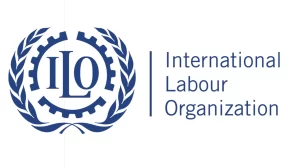The International Labour Organization (ILO) is preparing to launch “Work Wise Youth: A Guide to Youth Rights at Work,” an updated and expanded version of the 2015 manual titled “Rights@Work 4 Youth: Decent Jobs for Young People.”


This guide is a result of the initiative “Advancing Young People’s Engagement and Meaningful Participation in the Partnership for Improving Prospects for Forcibly Displaced Persons and Host Communities (PROSPECTS),” conducted jointly by the ILO, UNHCR, and UNICEF, with support from the Government of the Kingdom of the Netherlands.

Join our Telegram Channel for Updates
The comprehensive guide sheds light on the rights of young people in the workplace, encompassing topics such as wages, working hours, occupational safety and health, prevention of violence and harassment, gender equality, non-discrimination, and access to social security.
Tailored to the current dynamics and changes in the labor market driven by technological advancements, climate change, and globalization, the guide aims to advocate for equality, including gender equality, through a transformative agenda.
It is specifically designed for ILO constituents and other stakeholders involved in creating and implementing initiatives to raise awareness among young workers about their rights at work, with a particular emphasis on young individuals in forced displacement situations.
The guide’s rationale is rooted in the complex landscape young individuals face when entering the labor market, encountering both opportunities and challenges. Their employment aspirations, including fair wages, job security, and a safe working environment, are driven by ambition, energy, and enthusiasm.
However, these aspirations can be hindered by a lack of knowledge about legal standards, norms, and the fundamental principles and rights at work governing workplace relations and conditions. Young entrepreneurs, in particular, face additional barriers such as limited access to skills, finance, markets, and networks, making them vulnerable to risks like discrimination, exploitation, and unsafe working conditions.
The ILO emphasizes that decent work not only provides income for young individuals but also serves as a pathway to building a secure future and contributing meaningfully to society. Nonetheless, young people, especially those in forced displacement situations due to conflicts or violence, encounter specific challenges in accessing decent work and equal rights in the workplace.
Raising awareness about their rights is deemed crucial to ensure successful integration into the workplace, promoting freedom, dignity, and security.













